Do I need renters insurance?
Do I Need Renters Insurance?
Are you planning on becoming a renter or currently are renting and want to know more about whether or not you should have renter’s insurance?While it is not mandatory to always have renter’s insurance in BC, it is highly recommended in order to protect yourself and your possessions in a variety of important ways. That being said, in some cases, some landlords may require this as a part of your rental agreement.
Read on to learn more about the nature of renter’s insurance coverage and how it can benefit you.
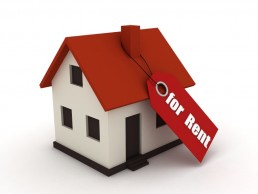
Also known as tenant insurance, while the costs will vary, renter’s insurance can be quite affordable compared to homeowner insurance. Additionally, renter’s insurance can do quite a lot to help protect you, not to mention provide the peace of mind you need while continuing to live comfortably in a rental unit.
More about Renters Insurance
While the rental property owner will be primarily responsible for providing coverage for the building and surrounding property itself, this will not extend to your personal possessions as well as situations that relate to actions that may make you responsible for repairs and damages.
Insuring Your Belongings
To begin, it is a good course of action to have additional coverage in place to protect your own personal belongings. For example, in the event you fall victim to theft or damage to your possessions, renter’s insurance can provide coverage up to a certain value to help with the often high costs associated with replacing these items.
When determining how much coverage you might need, you can start by taking an inventory of your items and estimating the total value. The following are some items to factor into your evaluation:
Personally owned appliances and electronics, furniture, bicycles and equipment, clothing, collectibles, jewelry and any other valuable items.
In the end, then value of these items, when combined, can reach high amounts and so it is worth having this additional security in place, in the event they are stolen or damaged.
Personal Liability Insurance
As mentioned, the property owner will have their own liability insurance to cover damages to the building, etc., however as a renter, it is important to also have your own coverage to protect yourself.
While you are likely to be taking all of the added care you need while living in your rental unit, sometimes accidents can happen that can leave you responsible for damages or injuries to another individuals. If there is damage to the unit or injuries to others occur while in your unit and you are found liable, insurance can help with any potential legal fees you might incur.
In some tenant policies, liability insurance can even cover scenarios when you need to stay at a hotel or another place where accommodations will need to be paid for, while your rental unit is being repaired. Rental insurance can help cover some of these costs and can definitely be well worth having in place for a wide range of situations.
Additional Insurance Factors
Again, renter’s insurance fees will be determined by a variety of factors, and therefore, when identifying the specific coverage, you will also want to be aware of some specific information regarding the unit you are renting.
With this information on hand, an insurance agent can help find the best tenant policy for your needs, based on the following criteria:
The year the unit was built, the unit square footage, and then type of heating used in the building. Additionally, factors including how close you live to emergency services, such as the fire department can also play a role in how an insurance policy is curtailed to meet your unique rental situation.
With a variety of situations helping to determine the type of renter’s coverage you will need, an important step in this process is to connect with an insurance agent to ensure you have the best policy in place for your individual needs.
At Leaders Insurance, we are more than happy to work with you to arrange for the best tenant insurance coverage that will provide the most protection possible.
Contact us to find out more about renter’s insurance coverage in the BC region.
Do you Need Special Insurance for a Cottage or Cabin?
Do you Need Special Insurance for a Cottage or Cabin?
If you own a cottage or a cabin, it is likely an important part of your life. While a cottage may serve a variety of purposes for you, whether it is a favourite family getaway spot or a year ‘round place of residence, there will definitely be one major consideration you will want to make. This being, having the right type of insurance coverage for your needs.Since insurance for recreational properties does differ from primary home insurance, it is important to look into your options for specialized insurance coverage that is geared towards cottage and cabin purposes.
When examining insurance options, the first step is to begin with deciding what your exact plans will be for your cottage moving forward, as this will help guide you in the right direction in terms of finding the type of insurance that will align best with these plans.
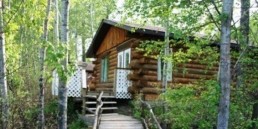
How Will You Use Your Cottage?
During this stage, you will want to identify how much time you will typically spend at your cottage. For example, will you occupy it all year round or will it be more of a seasonal spot only? In the end, each of these plans will factor into the type of insurance coverage you will need.
If your cottage is your secondary residence and you will be the only occupant, then it is possible for insurers to add this onto your primary home insurance policy. With that being said, not all coverage is created equally and there will be some exclusions. Therefore, it is best to look at the specifics of each policy and what will be covered.
What Coverage Will Meet Your Needs?
When it comes to separate cottage insurance policies, often referred to as recreational property insurance, there are several insurance packages worth considering. Additional coverage for seasonal properties that are only in use some of the time, can include: risk of damages to the property and structure, such as vandalism, fire and smoke damage, water damage, or any other such perils. Fortunately, also known as Peril Policies, these plans will take into account the unique cottage insurance needs you may encounter.
Liability insurance is also worth considering as this will help protect you in the event someone is injured on your property. This type of insurance also covered issues in relationship to situations when you are deemed responsible for causing damage to a neighbouring property or home.
Contents Coverage is another type of insurance to factor in, as there are likely items that you will leave at the property all year round. While any belongings, such as clothing or personal items that you take back and forth with you can be covered under primary home insurance, items remaining in the cottage will also require special insurance.
Lastly, if you store watercraft, such as canoes, sailboats, power boats, etc. at your cottage, some extra coverage will be needed as well to protect this valuable pieces of equipments.
Since you may have additional cottage or cabin insurance needs not listed here, then it is best to always contact a reputable insurance group to find out more about the specific insurance policies that are designed to help protect your property and your belongings.
Contact Leaders Insurance to learn more about the recreational property packages that we can put in place for you and how these special insurance policies can enable you to enjoy your time at your ‘home away from home’, however you choose to do so.
Preventing Accidents While Away From Home This Summer
Preventing Accidents While Away From Home This Summer
The summer is a wonderful time to explore different parts of the your region as well as venturing out a little bit further. Of course, you want to enjoy your time, and the last thing you want to worry about is experiencing accidents or injury.If you are planning a get away this summer, here are some tips to help prevent accidents while you spend some time away from home and enjoy the change of scenery.

Road Trip Safety
If you are travelling by car, in order to minimize the risk of having roadside accidents, the first step you can take is to plan ahead and keep safety at the forefront of your mind.
First of all, you will want to get your car ready for the road. Performing a vehicle maintenance check is an important step towards road trip safety.
Some steps included in your car safety check should include: checking and monitoring tire pressure, ensuring all fluids, such as transmission, steering, brake, motor oil, windshield wiper, and coolant levels are topped up. You will also want to include testing the battery and making sure you have a fully stocked emergency roadside kit.
Other key safe driving tips should include performing safe driving above all. Focusing on the road is an important part of safe driving practices, especially when you may be dealing with busy roads, that are congested with other motorists.
Whether or not you are driving alone or have family or friends in the vehicle, it is necessary that you reduce distractions. While it best to have your phone handy in case you do break down or have an accident, keeping your mobile device out of sight is fundamentally important and can greatly reduce your risk of being involved in a driving accident.
Campfire Safety
One of the ways you may also be planning to enjoy your summer is by going camping. Whether you are close to home or have travelling a bit further in mind, it is important to take the time to consider how you will keep yourself and your travel companions safe.
Before you even head out, it is recommended that you research the area you are going to be occupying. For example, knowing about the rules of the campgrounds, as well as the local fire danger ratings is important. There may even be fire bans in the area that you need to be aware of, and you can monitor these on the Canadian Wildland Fire Information System.
If you you are ok to proceed with having campfires in this region, then you will want to be up-to-date with campfire safety. Overall, it is necessary to learn about the best location and conditions for building a fire, such as a spot that is flat and bare and as far away from dry grass and of course a forested area as well as anything else that is combustible.
Before you even build your fire, you will need to have access to a water source, a bucket, or another extinguishing material. It is essential that you always keep a close eye on your campfire and ensure the fire is fully put out before leaving the area unattended.
Ultimately, you are the one responsible for your campfire, and to avoid accidents you should adequately review campfire safety as well as fire safety, in general with all individuals you are camping with.
In order to ensure everyone remains safe, the best course of action is to plan ahead for a range of potential incidences. With that being said, sometimes accidents do happen and you will want to be prepared for this as well.
Having the Right Insurance
While you can do everything in your power to avoid accidents this summer, it is still important to have the right insurance to help with a variety of situations that you may still encounter. Having both the best vehicle insurance, medical and travel insurance, as well as home insurance to keep your home safe while you are away, can make a world of difference.
Contact Leaders Insurance to learn more about our insurance policies and how we can contribute the helping you stay safe this summer.
How to Protect your Vacation Rental Home With Your Insurance Policy
How to Protect your Vacation Rental Home With Your Insurance Policy
If you own a vacation home that you will also use as a rental property, it is extremely important that you take the necessary steps to learn all that you can about how to protect yourself, your property, and of course your financial investment.Whether you are just beginning this new venture or are already accustomed to renting out your property, you will want to ensure that you have the proper insurance in place.
Just as you would take proper care of your primary residence with the necessary insurance, having the right insurance to protect your rental property is also an important action to take.
Here is some more information on how, along with insurance, you can protect your vacation rental home, and in turn, your financial interests.
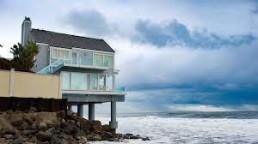
Preparing Your Rental Agreement
Preparing the rental agreement is an important place to start as this will set clear rules for tenants to follow as well as let them know what they can expect from you as a landlord.
Through added safeguards, such as having tenants sign a damage prevention wavier and pay a security deposit, you may even deter damage to your vacation rental property in the first place.
That said, if damage or injury should occur, you definitely want to have insurance coverage related to property damage and liability to help with financial ramifications of this nature.
Installing a Security System
While it is an additional upfront purchase, installing a video camera and surveillance system at your rental property can help offset your financial expenses in the long run. In many cases, you be monitoring your home from a distance, and therefore, you can keep a closer eye on any issues related to property damage, vandalism, theft and burglary. This can be especially beneficial in times when the property may be vacant.
Ultimately, with a security system and the proper insurance in place, you can avoid the potential for future situations where, as the property owner, you could be found liable, for damages or injuries to others, including your tenants.
Deciding What Coverage You Need
Again, it cannot be said enough that having insurance for your rental home can be extremely beneficial when it comes to protecting your financial interests and avoiding scenarios related to property damage and liability concerns.
Fortunately, there are specific policies that exist to to help meet these needs. Some of these types of insurance packages can include: Vacation Property Insurance, and Homeowners and Landlord Insurance coverage.
Ultimately, piecing together the finer details of your insurance policy can not only protect you from a wide range of situations, they can also be designed to meet the unique needs of your rental property.
In the end, owning a vacation rental home can prove to be an excellent financial investment and yet, it does come with an increased level of responsibility. That being said, working with an insurance broker is a highly beneficial way of making sure you have exactly the right coverage in place.
Contact Leaders Insurance and let us help set you up with the most suitable insurance coverage for your needs. With the highest level and ‘just right’ coverage in place, you will also have the added peace of mind that in your absence, your rental property and vacation home is more than adequately protected.
2021 Condo insurance Update
2021 Condo insurance Update
Here is an update on the status of the Condo Insurance and BC Strata Market for 2021.
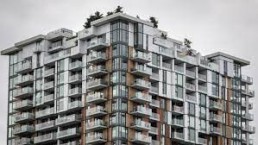
New information on the progress being made in this area has recently been released. This information is sure to have many BC condo owners asking the fundamentally important question of whether these premiums will continue to increase – or if BC will finally see a welcomed decrease in these rates anytime soon!
At first glance, the situation appears to remain much the same as insurance prices continue to be high in the province. As previously reported, the BC government’s Financial Services Authority (BCFSA) has been preparing to enact new strata corporation rules that are designed to lower these rates. On that note, it appears the exact timeframe for these additional regulations is still unclear.
With household claims being said to remain a huge factor in these increases, especially as many of the complexes continue to age, it is even the units where claims have not been made, that are also negatively impacted by these continually high rates.
To put the nature of these sharp increases into perspective, in areas such as Surrey, one townhouse complex reportedly saw premium increases of 180 percent in 2020. Moreover, it has been estimated that at the same location, rates are set to rise again this year by a total of 70 percent. While on one hand, the increase this year appears to be less, it is still an increase none-the-less that has many BC home owners extremely concerned.
Experts report that even if rates start to come down slightly, there are millions of BC residents who live in strata complexes, who need to see a sharp downwards turn in this market for them to experience some significant financial relief.
Ultimately, this remains a multi-faceted issue, with the BC government continuing to work to implement more changes. That said, it has been revealed that more regulations are coming in the future to help stabilize this market.
The group at the head of this change policy, the BCFSA believes that this market can be tamed, however it has become clear that this system will likely take time to correct.
The competitiveness of home insurance availability also points to driving up these fees. With limited insurance options at this point in time for condo corporations, some experts are stating that a return to private insurance companies may be the best course of action as another counteractive solution to the climbing rates in BC.
As BC residents await these previously announced regulations, it is clear that there remains an overall consensus that in order to ensure that a return to a healthier condo insurance market can occur as soon as possible, these government changes cannot come soon enough.
While navigating the current housing market, turning to an insurance agent remains an effective method of ensuring you have access to the best insurance options. Contact Leaders Insurance for more information on how we can provide you with the home insurance you need.
How to Protect your Deck & your Investment
How to Protect your Deck & your Investment
With nicer weather on the way, BC residents can look forward to spending even more time outdoors, including enjoying relaxing on their backyard decks. With this pastime to look forward to, keep in mind that you will want to take the time to protect your deck from various elements that can cause unwanted impacts, such as deck rot.Here are some steps you can take to help keep your deck in top condition as we move into the warmer seasons and can help you protect yourself - and your home, in the long run.
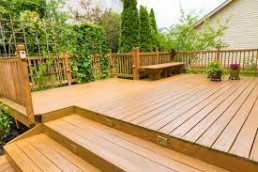
Perform Regular Deck Maintenance
First of all, it is also important to keep up-to-date with outdoor maintenance around your home and your deck should also be a part of this routine. Not only is this an investment in your home, it is also a situation, if not maintained can lead to you becoming liable. in the event someone is injured while spending time on your deck. A slip or fall incident and yes, even a deck collapse could lead to an unwanted accident and legal issue.
To avoid this, you can start by examining your deck for any evidence that might point to deck rot. With this, you should be on the look out for signs of damaged or rotted wood. These can include such any change in its appearance, such as discolourations to the wood, for example any darker or lighter patches.
With a watchful eye, you can also scan for gaps in the deck, where the wood will have likely shrunken. These signs can appear for reasons that include the wood becoming softer, spongier to the touch, as well as where it might also be crumbling or cracking. The paint may also display signs of wear and tear that can signify deck rot, and can present as bubbled or flakey surfaces.
One other way to identify whether you are dealing with deck rot is to use another one of your senses – that being smell. If deck rot is occurring, it is also highly likely that it will give off a musty smell, as the wood will have become damp due to excess moisture.
At this stage of the process, hopefully you have identified the problem earlier enough so that the deck rot can be treated. However, making sure your deck is a safe space for yourself and visitors should be a top priority.
Have Your Deck Inspected
Another method of ensuring your deck is well-maintained is to have it inspected by a professional. Not only can they let you know if it’s in solid condition, they can also help to point out if it is not and where repairs – or even replacement might be necessary.
A large part of this process also includes the inspection of the quality of the construction and the materials. This can particularly include an examination of the type of lumber that was used to build the deck, as these aspects should all be up to code.
If deemed that the proper materials and construction process was satisfactory, it is likely that a total reconstruction of the deck will not be necessary, however some prepares may be needed.
If deck rot is the cause of the damage, before the wood becomes too far gone, there are some steps to take to improve its condition. A part of this process will include, drying the deck and/or removing the source of the moisture. After this step, the wood can be re-treated with the proper products that will help to preserve the condition of the wood over time.
Ultimately, it is highly recommended that you also seek out more information from experts in this field to ensure you are taking the best steps to protect your deck.
Have the Proper Insurance
Not only do you want to protect the deck and outer perimeter of your home for a variety of important reasons, it is worth mentioning here as well that this moisture can also seep into the inside of your home.
For added protection of your home – inside and out – having home insurance to cover these types of damages as well as protect you from the possibility of being involved in an injury liability case, should warrant additional consideration for this type of home improvement investment.
At Leaders Insurance, we are here to help you protect all aspects of your home. Contact us to learn more about how home insurance policies can ensure you can make the most of your time as you look to spend more carefree time outside enjoying your home.
How to Insure a Vacation Home in 2021
How to Insure a Vacation Home in 2021
Do you own a vacation home? If so, then 2021 as well as its predecessor, may have posed some additional challenges for you with regards to either operating it as a rental or being able to spend some time there, yourself. Hopefully this will improve as we move further in 2021, however, one factor still remains the same, you will need to continue to have this property adequately insured.Here are a variety of scenarios that may relate to you and your vacation home and the steps you can take to ensure you have the proper home insurance policy to meet your ongoing needs.
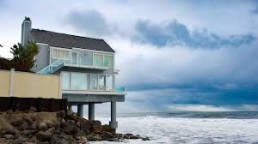
For starters, to help determine the type of insurance you need, one key consideration is how often you will be living there. For example, if this is your secondary residence, then it is important to know that it is likely that you will be paying a bit more for insurance costs. In some cases however, you may be able to include your vacation home insurance in the same policy with your primary residence coverage.
To better identify how best to insure your vacation home, you can review the following vacation home occupancy scenarios and see which one(s) best reflect your insurance needs.
Insuring a Home You Are Not Renting Out
If you own a vacation home that you are not going to be renting out, then your primary home insurance coverage may not include this type of coverage. This is because primary residence insurance policies typically only relates to homes that are being regularly occupied.
For example, if this home will be unoccupied for more that 30-90 days at a time, you are likely to need to take on some additional coverage to include in your home insurance package. Speaking to your insurance broker is the best course of action, so that you make sure you have enough secondary coverage.
Insuring a Home You Will Occasionally Rent Out
This second scenario includes the times when you plan to rent out your secondary residence on an occasional basis. Perhaps you will rent out your vacation home as an occasional Airbnb, or to friends and family a couple of times a year.
If this is the case, then your original and standard home insurance policy might cover this type of arrangement as well. With that said, again you will want to discuss this with your home insurance broker to ensure you have the right coverage for your needs.
Insuring a Home You Will Regularly Rent Out
This last rental arrangement, as the heading states, is for secondary vacation homes that will be rented out on a regular basis. Unlike the other two scenarios, if this is your plan, it is highly likely that you will need to add some additional coverage onto your original policy.
Here are some of the types of supplemental coverage you may need, depending on your circumstances.
Short-Term Rental Insurance Coverage:
Otherwise known as home-share coverage, this vacation home insurance policy option is typically a type of insurance for those who are renting out their homes as an Airbnb or for shorter periods of time. In this type of arrangement, adding coverage to your original policy is the likely to be necessary. It is advisable that you check with your broker make sure you have enough insurance for the correct length of time for these shorter rental periods.
Long-Term Rental (Landlord Insurance) Coverage:
This type of coverage is used more in the cases of longer-term rentals, however sometimes can also apply to short-term tenants as well. If there is the potential that you will be renting out your vacation home for longer stretches of time, then choosing this comprehensive insurance package might be the more affordable option. This insurance policy reflects a separate insurance package on its own to ensure that as a homeowner you are adequately covered for these types of rental agreements.
In the end, the best way to protect your vacation home is to first, identify how you plan to rent out your vacation home in the future. Additionally, since these types of insurance policies can vary across different insurance companies, you will want to examine these policies closely with the help of your insurance broker.
At Leaders Insurance we want to ensure that our clients have the most up-to-date information regarding their insurance policies. If you are looking to insure your vacation home this year, contact us so that we can align your home insurance coverage with your specific needs.
What is a Communicable Disease Exclusion on your Home Insurance?
What is a Communicable Disease Exclusion on your Home Insurance?
If you are a homeowner, it is likely that you have already given a lot of thought to the type of insurance you need. With that being said, these days, we have had to expand our scope more than ever to also factor in issues related to COVID-19 and pandemic home insurance claims.There is a component of home insurance that covers Communicable Disease Exclusion, and while in the past, this has been rarer, during these unprecedented times, some insurance companies have opted to include this in their home insurance policies moving forward.

Currently this type of insurance feature has been closely related to the COVID-19 claims that insurance companies are more likely to encounter. For example, in the event a person files a claim that they have been infected with COVID-19 or another communicable disease in the home of another individual, they could feel they have grounds to sue the individual whom feel is responsible, particularly if they have become severely ill as a result.
While in many parts of Canada, there have been strict rules in place for limiting gatherings, particularly within homes. This type of cross-household contact has been identified as one of the common methods of COVID-19 transmission.
On the other hand, many Canadians have taken the necessary precautions and done everything possible to avoid the spread of COVID-19. With that said, individuals could still have gone on to contract the virus and in some cases, they may look at tracing it back to a certain social gathering or interaction they had within a particular household.
While it can be a challenge to prove these types of cases, the bottom line is, that this could be an expensive outcome for homeowners. Therefore, turning to this type of home insurance coverage may definitely be worth examining further.
Ultimately, with this Communicable Disease Exclusion in place, your home insurance policy can cover these types legal expenses. It is recommended that you do reach out to your broker to find out if this is already included in your policy, and if not, perhaps adding this your home insurance package could be of great benefit to you.
In the end, what this really comes down to is the importance of having a full understanding of your home insurance policy. By having a better grasp of all of the features and specific types of coverage, as a homeowner, you can have the added peace of mind you need to effectively navigate the responsibilities of homeownership, especially during these extremely challenging times.
At Leaders Insurance, we are committed to making sure our clients are informed and fully satisfied with their insurance coverage. Contact us today to learn more about the Communicable Disease Exclusion for homeowners, and let us help to ensure you are set up with the best home insurance policy that covers all of your needs now and into the future.
Christmas Tips to Protect your Home During the Holiday Season
Christmas Tips to Protect your Home During the Holiday Season
For many Canadians this year, the Christmas season may look a little bit different. While the current pandemic has made staying home instead of travelling or visiting family more the of reality, there are still many ways to enjoy the holiday season from your own home.Here are some important tips to help protect your home this Christmas.

Decorate Safely
One part of the Christmas season that always brings a lot of joy to our homes is holiday decorating. Putting decorations up around your home, and decorating the Christmas tree are common traditions that take place across many households. Perhaps you are decorating outdoors and indoors to help spread the holiday cheer in your own home as well as in the neighbourhood. With that said, it is also important to make sure that this decorating is done with safety in mind.
For example, if you are stringing lights inside and outside of your home, you will want to be aware of the combination of the power bars and power cords you are using. One reason for this is so that you do not overload the outlets. You will also want to check that the cords are in proper working order. Making sure that the cords are free of frayed or broken wires is essential as these damage wires can pose a threat by having the potential to cause an electric shock or even an electrical fire.
You may also be incorporating candles into your festivities, and while these can be a lovely and calming addition to your home, you should avoid leaving them burning while unattended. Instead, blow them out before you leave the house or you go to bed. This way, your home and your Christmas celebrations will remain in tact and you’ll be able to enjoy the holiday with a great deal more peace of mind.
Beware of Porch Thieves
Another way you can protect your home this holiday season is to keep a watchful eye out for porch parcel thieves. Unfortunately, with the increase in online shopping and amount of deliveries we receive these days, this is only continuing to happen more and more in even the safest of neighbourhoods.
That said, if you have packages being delivered – all is not lost. Fortunately, there are methods of managing these deliveries and keeping your items safe. One step you can take can be to purchase a lock box for your delivered items. Additionally, you may also want to turn to security systems, such as video doorbells, alarms and smart lights as these can also help to discourage porch thieves. Finally, if you are able to have packages delivered elsewhere, for example, to your workplace or to a family member, this can help to reduce the amount of home deliveries, and in turn, instances of porch theft.
Monitor your Home While You’re Away
Porch thievery can also mean that strangers are potentially lurking around your home and this could lead to break-ins. As a result, you will also want to be proactive and make sure you are protecting your home from thieves who are even more invasive. An empty home or a home that appears empty can be all too tempting and sadly, the Christmas season is a common time for these types of break-ins.
Again, you may want to consider investing in a home security system, with an alarm and video camera setup. Whether you are travelling across town or a bit further this year, it doesn’t take a lot of time for break-ins to occur and it is best to be prepared, especially at Christmas.
Limit Personal Sharing on Social Media
On a final note, it is also suggested that you limit what you share on Social Media sites. While you may have good intentions about thanking people for their gift-giving generosity, this instead could be a virtual window into your home and the items you own. As a result, this could make you a target for future thefts. With that said, any actions you can take to either deter or catch thieves in the act, will be an effective way of keeping your home a lot safer this holiday season.
While COVID may have forced you to alter your plans this year, you can still make the most of the season by remembering to do what you can to keep your home a safe and peaceful place over the holidays.
Leaders Insurance can also help to protect your home this Christmas. Get in touch with us to find out more about our home insurance policies and how our services can contribute to the peace and comfort you experience not just this holiday season, but all year long as well.
5 Questions to ask your home insurance agent
5 Questions to Ask Your Home Insurance Agent
As a homeowner, it is important to keep up-to-late on the latest ins and outs of your home insurance policy. You can start by knowing the right questions to ask.Here are 5 questions to ask your home insurance agent.

How do I know if I have enough coverage to replace all of my household possessions?
Naturally, one of the first questions you will have is to find out if you have the right amount of coverage. In the event, you need to replace all of your household possessions, you will then have peace of mind, knowing that all of your insurance needs are covered.
In order to perform an accurate assessment of your belongings, you can take pictures of all of your most valuable items. These items can range from furniture to clothing, from appliances to electronics, and so on. You should also be sure to keep these items in a safe place, not located in your home.
Do I have enough insurance to rebuild my home?
A second inquiry you are likely to ask your insurance agent is whether you have enough coverage to completely rebuild your home. Not only does this include your possessions, it includes the structure, itself.
Additionally, you should also include in this conversation whether your policy covers a range of scenarios in which your home and possessions are lost. For example, if your home and belongings are destroyed due to natural disasters, is this still covered? In fact, it never hurts to ask as this could save you a lot of additional worry – and of course money in the long run.
Under what circumstances do I need Liability Insurance?
An aspect of your home insurance that you will also want to look into is liability insurance. A viable question to ask your agent is what specific kinds of liability coverage you might need as well as how much. For example, in the instance an individual has an accident or is injured while on your property – you could be considered liable.
Another scenario that falls under this category is in the event, your actions or your home itself causes damage to another person’s property. Either way, it is a good idea to check with your agent to see that you have the proper coverage to ensure you are financially protected against these range of situations.
What happens if the value of my home changes?
It can also benefit you to find out whether you may need to adjust your insurance and under which situations, this might be necessary. If you know you will be renovating or increasing the value of your home in terms of any upgrades, such as a pool or hot tub, etc. then your home insurance will likely need to revised to better reflect its current value. An increase in household possessions can also be included in this updated appraisal and your insurance agent can help guide you in making these amendments.
Do I qualify for any discounts?
One last question you shouldn’t be afraid to ask is whether you qualify for any discounts. For example, you may have options to bundle various insurance packages together. For example, you may be able to combine your vehicle and your home insurance into one policy and this could allow you to save on your overall insurance costs as well.
Secondly, if you let you insurance agent know you have additional safety measures in place to protect your home, such as a security system, smoke and sprinkler systems, this may entitle you to a bit of a break on your insurance fees.
In the end, owning a home is a substantial financial commitment. Therefore, being able to turn to your home insurance agent and ask the right questions can help to make this a more positive experience.
